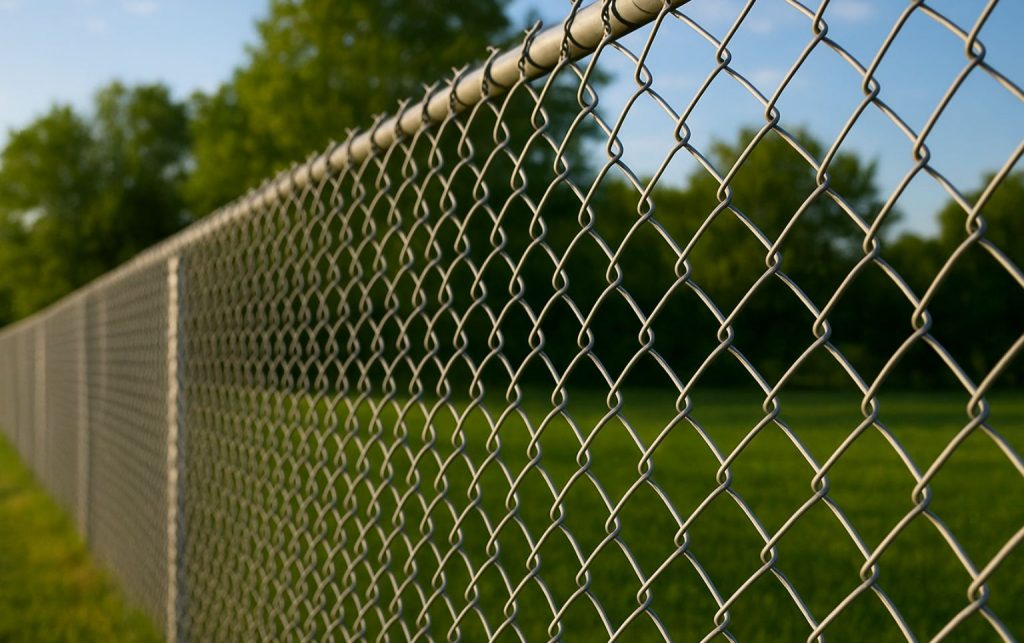In today’s construction and property management environment, How to Choose the Size and Type of Mesh for Chain Link Fences has become a critical skill. The mesh you select affects not only the fence’s strength and durability but also its ability to meet security standards, enhance site safety, and maintain cost efficiency over time. This guide outlines the essential factors that businesses and property owners should consider when specifying chain link fencing.
Understanding Mesh Size and Wire Gauge
Mesh size refers to the distance between the parallel wires that form the diamond-shaped pattern of a chain link fence. The smaller the mesh, the tighter the weave and the higher the security level. Standard residential installations typically use larger mesh openings, while commercial and industrial applications favor smaller mesh for added strength and tamper resistance.
The wire gauge also matters. A heavier gauge wire provides more rigidity and resilience against cutting or bending. Combining the correct mesh size with an appropriate wire gauge ensures a fence that performs reliably for years under different conditions.
Balancing Security with Cost
Security requirements vary widely. High-risk facilities like warehouses, schools, or utility stations need tighter mesh and heavier gauge wire to prevent intrusion. In contrast, recreational areas may opt for lighter specifications to control costs while still defining boundaries. Working with experienced providers like chain link fencing Chicago can help organizations achieve the right balance between performance, budget, and compliance with local standards.
Coatings and Materials
Beyond size and gauge, coatings significantly influence longevity and appearance. Galvanized steel remains the most common material due to its corrosion resistance. For more aesthetic or high-end projects, vinyl-coated wire offers additional color options and environmental protection.
Maintenance costs can be minimized by choosing durable coatings upfront. This strategy prevents premature replacement and reduces total cost of ownership.
Compliance and Local Standards
When specifying mesh, always check regional building codes and industry guidelines. Different jurisdictions may have requirements for fence height, grounding, or even the thickness of the wire used in certain applications. Consulting with a chicago steel fence supplier or contractor ensures that your design meets both safety and legal expectations.
Integrating Chain Link Fencing into Site Design
Chain link fences can be more than utilitarian barriers. By selecting color-coated options, privacy slats, or decorative posts, you can integrate security infrastructure seamlessly into your property’s visual identity. This is especially important for businesses seeking to project a professional and trustworthy image.
Choosing Experienced Contractors
Even the best materials cannot perform well without proper installation. Engaging a reliable Commercial fencing company Chicago ensures that your specifications are correctly executed on-site. Skilled installers understand tensioning, post depth, and line alignment—factors that directly affect the fence’s lifespan and stability.
Long-Term Value and Sustainability
A well-planned chain link fence is an investment, not just an expense. Beyond immediate security benefits, a durable fence lowers liability risks, reduces maintenance, and can even improve insurance assessments for commercial properties. Choosing eco-friendly coatings or recycled materials further enhances your organization’s sustainability profile.
Conclusion: Making Informed Choices
Selecting the right mesh size and type for a chain link fence requires balancing security, aesthetics, and budget. By considering wire gauge, coatings, and installation quality, property owners can achieve a solution that performs over the long term. Collaborating with specialized providers like chain link fencing Chicago, chicago steel fence, and a trusted Commercial fencing company Chicago helps ensure that your investment meets both functional and regulatory demands.
For additional guidance, consult the City of Chicago – Fence Regulations and Permits, which provides official information on local requirements, specifications, and best practices for designing fences that comply with municipal standards.

